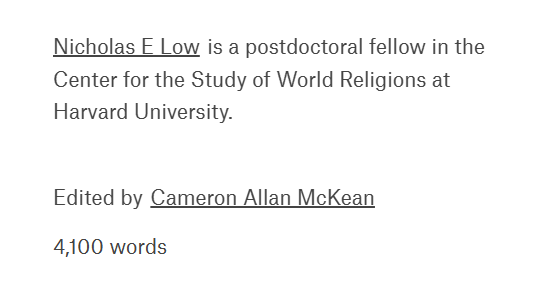Welcome to DU!
The truly grassroots left-of-center political community where regular people, not algorithms, drive the discussions and set the standards.
Join the community:
Create a free account
Support DU (and get rid of ads!):
Become a Star Member
Latest Breaking News
Editorials & Other Articles
General Discussion
The DU Lounge
All Forums
Issue Forums
Culture Forums
Alliance Forums
Region Forums
Support Forums
Help & Search
Beyond food and people

Nietzsche shows us how to embrace our connection with nature – without denying its essential conflict, strife and suffering
https://aeon.co/essays/nietzsches-startling-provocation-youre-edible-and-delicious

A saltwater crocodile. Photo by Ken Kiefer/Connect/Alamy

It looked like a piece of driftwood floating in muddy floodwaters. But then it grew a pair of eyes that peered above the waterline. As the canoe came closer, the crocodile struck, attempting to topple it. Not knowing what else to do, the woman inside paddled toward a set of trees with branches hanging over the water. When she jumped to grab one, the crocodile leapt, too, pulling her underwater into a death roll. ‘That was the worst part of the whole experience,’ she told the news team that interviewed her in hospital. ‘The part that I still don’t like to remember.’
In February 1985, the Australian eco-philosopher Val Plumwood survived a crocodile attack on a remote river in Kakadu, one of Australia’s largest national parks. After being pulled under three times, she clawed her way up a muddy bank, making a tourniquet to stem the bleeding in her leg. For several hours, she dragged herself through the bush, dreading another attack that never came. Plumwood would have been the 17th person to be killed (and possibly eaten) by a crocodile since 1930 in Australia’s Northern Territory. As the interviewer reminded her, there were two methods for dealing with crocodiles that kill or maul humans: captivity or death. The crocodile that attacked Plumwood had supposedly been shot and killed.
Still recovering from surgery, Plumwood told the news team that she thought this act of revenge was ‘basically pointless’. Why is it, she continued, that we think it is outrageous when another animal attacks a human being? Why is this kind of predation seen as something completely outside the naturally ordained order of things? The interviewer paused to clarify: ‘That we’re the dominant species and should never be under attack?’ ‘That’s right. We can’t accept the idea that we are part of the food chain. We eat other species all the time, we do dreadful things to other species and we see that as quite natural, but when we’re attacked by other species and they treat us as food, well, that’s unbelievable. We can’t accept that at all.’
For many centuries, European cultures have conceived of humans as radically separate from nature, formed in the imago Dei, and possessing immortal souls that transcend the natural order. But this human exceptionalism has begun to fray. Science has shown that we are, just like other animals, subject to the surging forces that constitute the natural world. We are immersed in nature. At a microscopic level, we exchange atoms with surrounding objects, and are densely populated by microbial panoplies shared with the things we touch, wear, and consume. We are not independent entities, but vast, shifting communities of living and non-living participants.
snip
1 replies
 = new reply since forum marked as read
Highlight:
NoneDon't highlight anything
5 newestHighlight 5 most recent replies
= new reply since forum marked as read
Highlight:
NoneDon't highlight anything
5 newestHighlight 5 most recent replies
Beyond food and people (Original Post)
Celerity
Friday
OP
Igel
(37,029 posts)1. Odd. Sort of sounds vaguely submissive.
‘That’s right. We can’t accept the idea that we are part of the food chain. We eat other species all the time, we do dreadful things to other species and we see that as quite natural, but when we’re attacked by other species and they treat us as food, well, that’s unbelievable. We can’t accept that at all.’
Dunno, I can. It's completely normal for other predators to think of us as food.
That does not mean that we have to accept it and not fight back to discourage it.